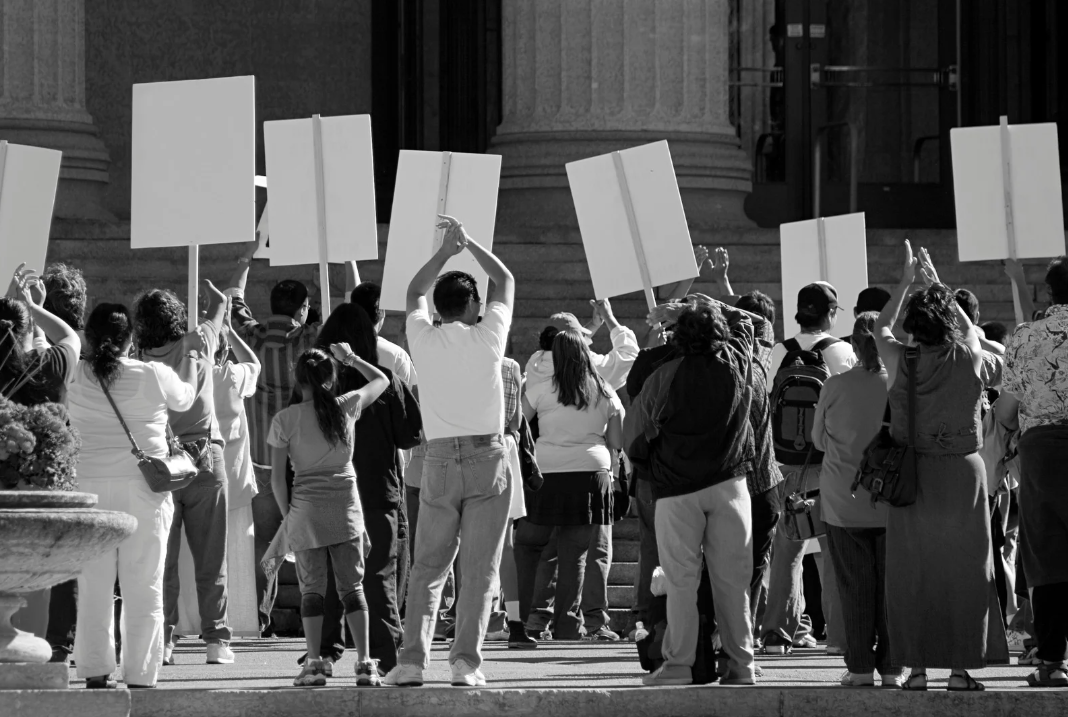
Your Body Remembers
The banners may be down and the streets may be quiet, but for many who participated in or witnessed the recent protests, the experience is far from over. While the fight for a cause can be empowering, it's crucial to acknowledge the silent impact it can have on our minds and bodies long after the crowds have dispersed. This isn't about weakness; it's about understanding the very real, and very human, response to intense and often traumatic events.
Many of us are taught to separate our minds from our bodies. We think of stress and anxiety as purely mental struggles. But the truth is, our bodies keep a physical record of our experiences. That lingering tension in your shoulders, the persistent knot in your stomach, or the frustrating inability to get a good night's sleep? These aren't just random occurrences; they can be your body's way of telling you that it's still processing the events of the protest.
The Mind-Body Connection: When Your Body Speaks Its Mind
Think of your mind and body as being in a constant conversation. During a protest, your brain is on high alert, releasing stress hormones like adrenaline and cortisol to keep you ready for action. This is the "fight or flight" response, and it's essential for survival. However, when the perceived threat is gone, your body doesn't always get the memo to stand down. It can get stuck in this state of high alert, leading to a cascade of physical and emotional responses.
This is what we mean by the mind-body connection. The emotional toll of a protest—the fear, the anger, the exhaustion, the hope—doesn't just stay in your head. It translates into physical symptoms. You might notice:
- Unexplained Aches and Pains: Persistent headaches, backaches, or a clenched jaw can be signs of stored tension.
- Digestive Issues: That queasy feeling or an upset stomach can be directly linked to stress and anxiety.
- Sleep Disturbances: Difficulty falling asleep, staying asleep, or experiencing nightmares are common ways your body processes unresolved stress.
- Increased Heart Rate or Shortness of Breath: Even when you're resting, your body might still feel like it's in a state of high alert.
- Fatigue: A deep sense of exhaustion that sleep doesn't seem to fix is a hallmark of your nervous system being overworked.
How Your Behavior Tells a Story
It's not just your physical health that can be affected. The lingering impact of a protest can also show up in your daily actions and interactions. You might find yourself:
- Being More Irritable or Quick to Anger: When your nervous system is on edge, your patience wears thin more easily.
- Withdrawing from Social Activities: The desire to be alone and avoid social situations can be a way of coping with feeling overwhelmed.
- Feeling "Numb" or Detached: This emotional blunting can be a protective mechanism to avoid feeling the full weight of your experiences.
- Being Easily Startled: A loud noise or unexpected touch might trigger an exaggerated response.
- Engaging in Risky Behaviors: Some people might turn to substances or other risky activities as a way to cope with difficult emotions.
It's important to recognize that these are not character flaws. They are common, and understandable, reactions to an overwhelming experience. Your body and mind are trying to make sense of what happened and find a way back to a sense of safety.
So, What Can You Do? How to Help Your Mind and Body Heal
The good news is that you don't have to feel this way forever. There are simple, yet powerful, steps you can take to help your nervous system regulate and begin the healing process:
- Tune Into Your Body: Take a few moments each day to simply notice the sensations in your body without judgment. Are your shoulders tense? Is your breathing shallow? Acknowledging these physical feelings is the first step to releasing them.
- Gentle Movement: You don't need to run a marathon. Gentle activities like stretching, walking, or yoga can help release stored tension and calm your nervous system.
- Prioritize Rest: Allow yourself to rest, even if you can't sleep. This might mean saying no to social plans or taking a break from the news.
- Connect with Others: Talk to trusted friends or family about how you're feeling. Sharing your experience can be incredibly validating and reduce feelings of isolation.
- Seek Professional Support: There is immense strength in asking for help. Therapists and counselors can provide you with tools and strategies to process your experiences in a safe and supportive environment.
The aftermath of a protest is a complex and personal journey. Be patient and compassionate with yourself. Your body and mind have been through a lot, and it's okay to take the time you need to heal. Recognizing the intricate connection between your mental and physical well-being is a powerful step towards reclaiming your sense of peace and wholeness.
If you are someone who is feeling stressed, anxious or impacted by the protest and national unrest. You are not alone.
Contact Happy Minds for a respectful and confidential conversation. Let's work together to bring the light back into the lives of those who have given us so much.
Call us at +977 9801031443 or visit our website at www.happyminds.health
